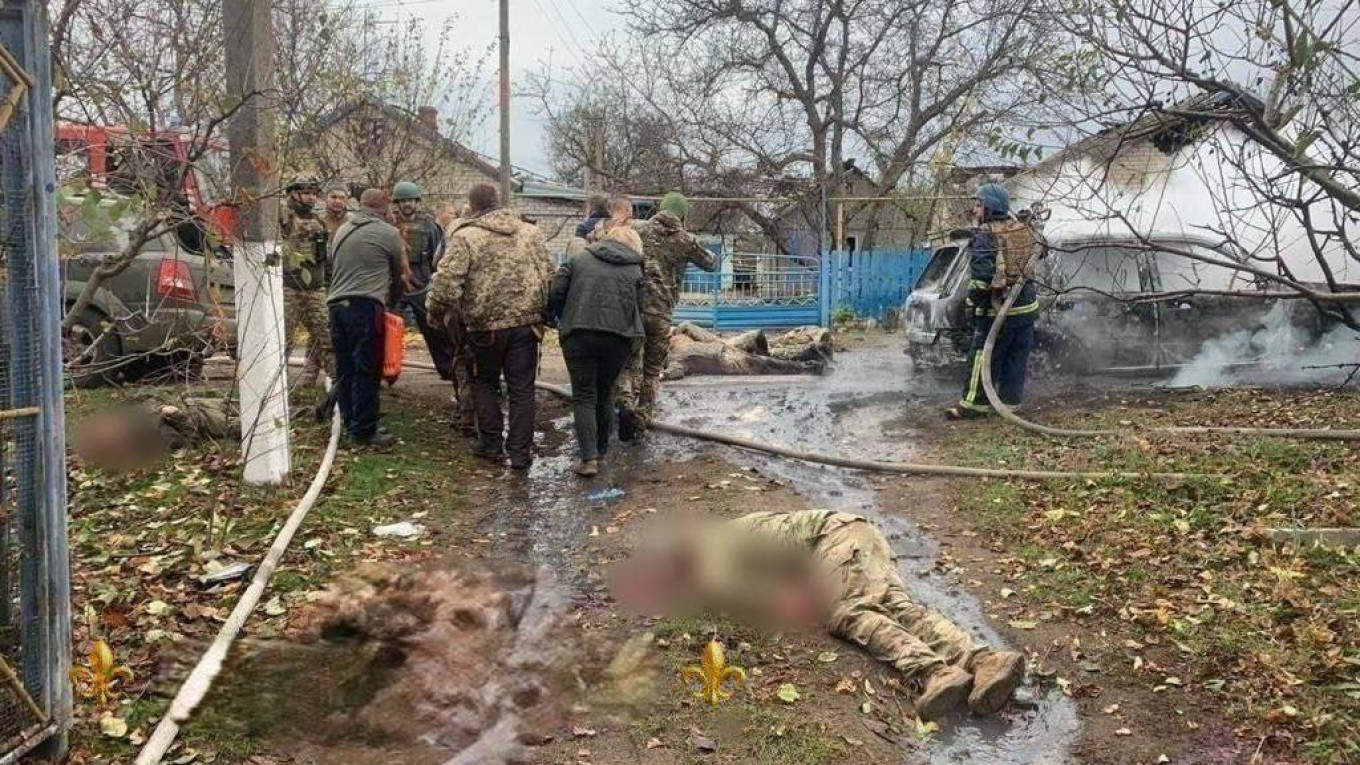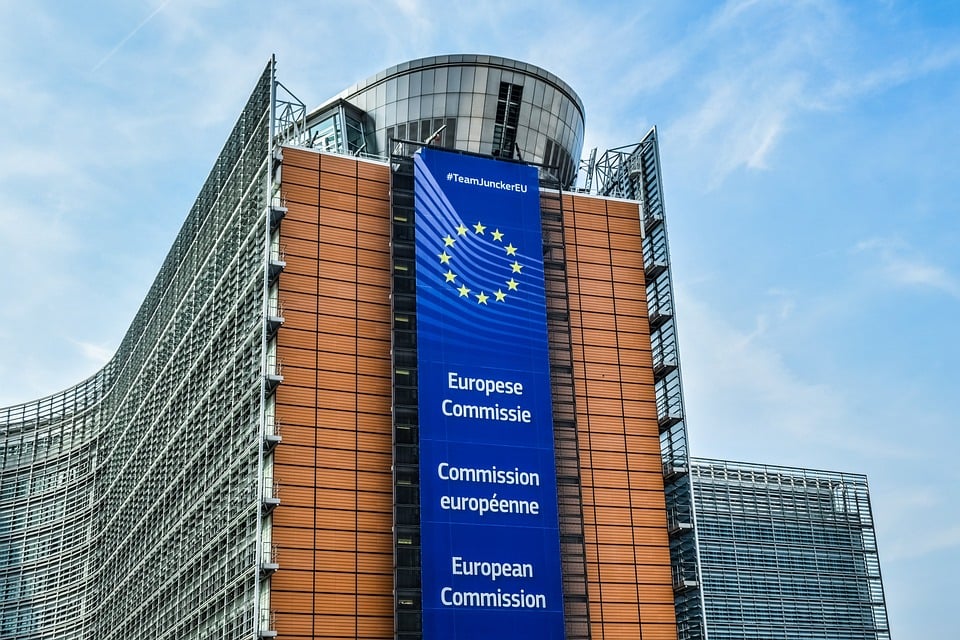
Since it went to war with Hamas early last month, Israel has stepped up strikes against Iran-backed militias in Syria who have moved close to the Israeli border.
The development comes with a key shift in Israeli policy — it no longer always tells Syria’s patron Russia in advance about attacks on Syrian territory.
“As a general rule,” Israel isn’t informing Russia before its strikes in Syria, Russian Deputy Foreign Minister Mikhail Bogdanov said Friday, according to the Interfax news service. “We find out after they happen.”
The change is worsening already troubled relations between Israel and Russia. And there’s a danger of Syria emerging as a new front in the Israel-Hamas war, a situation the US and regional allies are trying to avoid as they seek to contain the conflict. Tensions are already high on Israel’s border with Lebanon, Hezbollah’s base and from where it’s exchanging fire with the Israeli military on a daily basis.
“Spillover into Syria is not just a risk; it has already begun,” Geir Pedersen, the United Nations special envoy for the country, said this week. “Fuel is being added to a tinderbox that was already beginning to ignite.”
Over the last decade, Syria became a global battleground. The US has almost 1,000 troops there to counter Islamist extremists and Turkey is fighting Kurdish groups in the north. Iran and Russia, meanwhile, are helping President Bashar al-Assad stay in power. Hundreds of thousands of people have been killed, and millions forced to flee.
Today, all-out war has been replaced by more sporadic fighting but the conflict in Israel-Gaza is exacerbating tensions.
On Oct. 30, Israeli warplanes bombed a Syrian military base in the southern province of Daraa. That was after Israel had dropped leaflets warning Syrian forces against allowing Iran and its proxies to operate near the border with Israel, according to the people familiar with the situation.
Five days earlier, Israel struck a weapons depot at a large Syrian base in the south, where Iranian officers and operatives from Hezbollah are embedded with Syrian forces. The attack killed more than a dozen Syrian soldiers, according to the people. Israeli warplanes also hit air surveillance radars at a nearby facility, they added.
Members of the Russian military police are occasionally present at a facility next to this base. It’s unclear if they were there when Israel struck. The Syrian military acknowledged both attacks.
Iran Doesn’t Want Hezbollah Fighting Israel: Bobby Ghosh
Israel did not notify Russia in advance of the strikes, said the people who spoke about them.
And in the past three weeks, Israel struck Syria’s main two airports in Damascus and Aleppo several times, putting them out of service and forcing civilian aircraft to land in the Russian airbase in Hmeimim on Syria’s Mediterranean coast instead, said the UK-based Syrian Observatory for Human Rights.
Israel has for years routinely struck targets in Syria, mainly to thwart Hezbollah militants or secure its own north-eastern border. Since Russia intervened in the Syrian war in 2015, it’s coordinated with Israel to ensure their forces don’t clash or mistakenly fire on each other.
Israel’s Defense Ministry declined to comment on the recent lack of warnings or whether leaflets were dropped on Syrian forces ahead of Monday’s strike.
Israeli Defense Minister Yoav Gallant said his forces were determined to stop Iran ferrying weapons to Lebanon through Syria.
“We will not allow a new Hezbollah front there or permit an Iranian military presence in Syria,” he told reporters Tuesday.
Hamas and Hezbollah receive extensive funding and training from Iran. They’re both designated as terrorist groups by the US.
The Israeli warnings to Russia served both countries. Five years ago, Russian President Vladimir Putin assured Israeli Prime Minister Benjamin Netanyahu he would do everything to prevent Iran and Hezbollah from gaining a foothold in southwest Syria, across from the Israeli occupied Golan Heights.
But after Russia sent troops into Ukraine in 2022, Moscow tightened its alliance with Iran, straining relations with Israel. The war against Hamas, which rules Gaza, and the deep cooperation between Israel and the US have driven the two even further apart.
The US has moved two aircraft carriers to the region since Oct. 7, when Hamas militants swarmed southern Israeli communities and killed 1,400 people, many of them children. Washington stood by Israel as it launched a mass of airstrikes on Gaza and started a ground offensive. Russia has criticized Israel’s actions, which Hamas-led authorities say have killed more than 9,000 people.
Putin Holds Meeting to Discuss Anti-Israel Mob in Dagestan
Israel condemned Moscow for hosting a delegation from Hamas and Iran’s deputy foreign minister last week. And on Oct. 29, a mob invaded an airport in Dagestan in southern Russia to seek out passengers on an incoming flight from Israel. Putin blamed Ukraine and Western intelligence services for the antisemitic incident.
“Russia is basically supporting our enemies,” said Amos Yadlin, a former head of Israeli military intelligence, referring to Moscow’s military cooperation with Iran and its contacts with groups such as Hamas and Hezbollah.
Since the Israel-Hamas war started, hundreds of Iran-backed militiamen have moved from the Iraq-Syria border to be nearer Israel. They have conducted at least 12 attacks against Israel, according to Charles Lister, who heads the Syria Program at the Washington-based Middle East Institute think tank.
He said his tally also indicates 33 attacks by Iran-linked militias on US bases in Iraq and Syria during the same period. He added Russia has ramped up electronic jamming from its Hmeimim base in Syria, which has interfered with commercial air traffic including flights landing in Tel Aviv.
“Russia is very happy to both stand back and get out of the way and watch chaos unfold,” said Lister. “But it’s also quite happy to facilitate chaos.”
Badr Jamous, an Istanbul-based Syrian opposition leader, said Moscow may be content to see an Iran-backed escalation on the Israel-Syria front to distract the West further from Ukraine. Putin may also want to force the US and its allies to seek Russia’s help in preventing a wider conflagration, he said.
“Russia has hooked up with Iran all the way because they’ve have become dependent on Iran for lots of military capabilities,” said Manuel Trajtenberg, executive director of the Tel Aviv-based Institute for National Security Studies.
(Updates with Russia confirming it’s not receiving advance warnings in third paragraph.)










